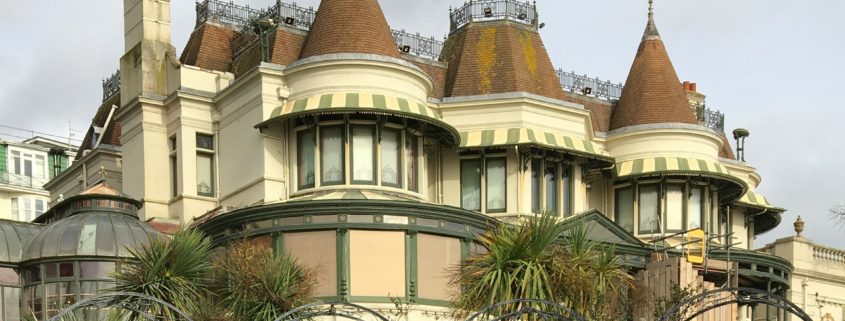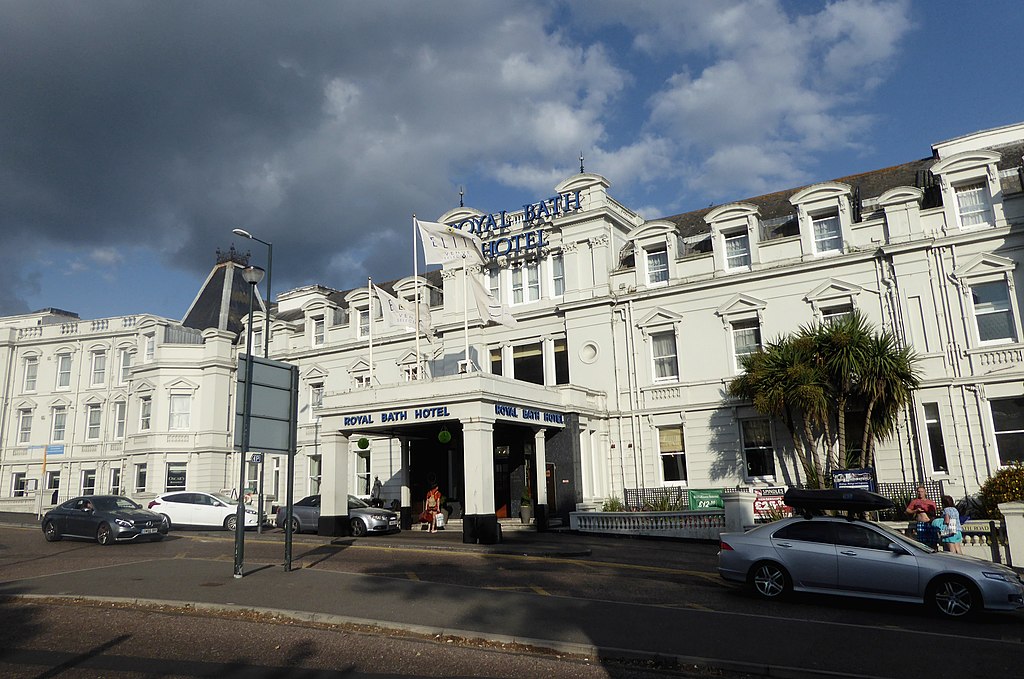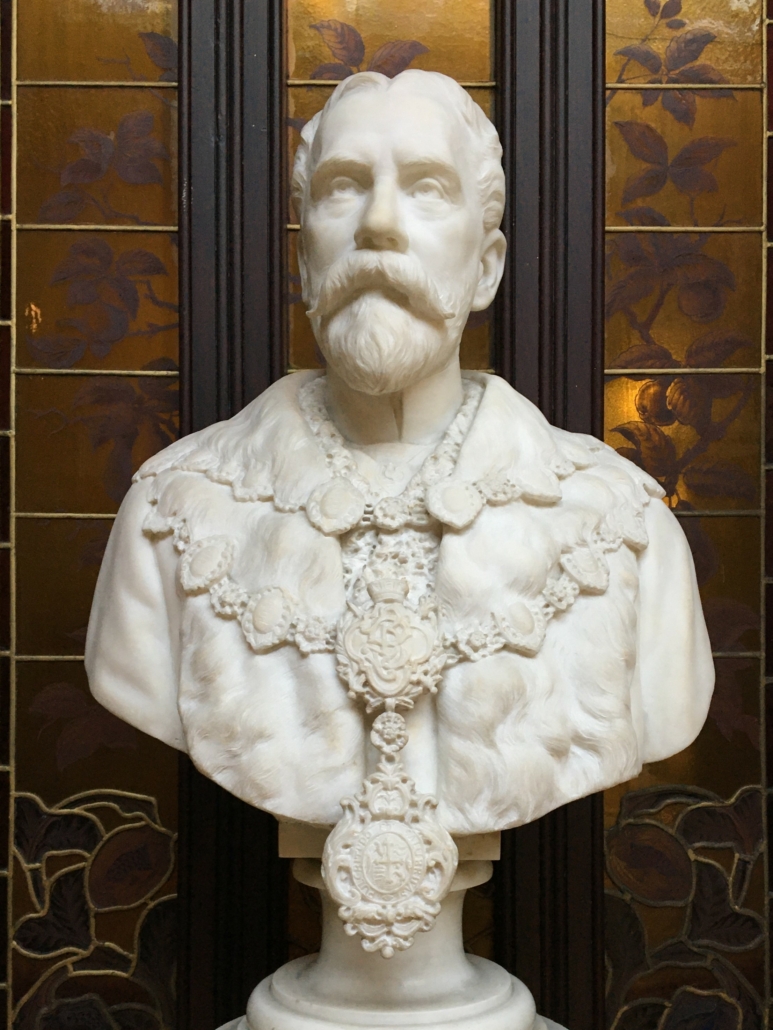One Hundred Years Ago Bournemouth Is Given a Treasure Trove
On 27 January 1921 Sir Merton Russell-Cotes died. In the course of a long and colourful life he had risen from humble beginnings to possess a fortune (most of which was given away to charitable causes), a flagship Bournemouth hotel, a significant art collection which filled a purpose-built clifftop villa, a knighthood, and a double-barrelled surname. In 1896 he had secured a lease on the elevated site for a new house, East Cliff Hall. In appearance this was an eccentric fusion, in his own words, of “Renaissance, Italian and old Scottish baronial styles.” Only the top storey was visible from the road and entrance level, while three storeys nestled into the cliff and commanded superb sea views. Visitors descended into the double-height Main Hall, which was overlooked on all four sides by a balcony. Statuary and a mosaic fountain caught the eye in the Hall, while the balcony walls were covered with paintings. Rooms off the balcony were dedicated to Japanese artworks – 100 packing cases of artefacts had been brought back from Japan in 1885 – and to memorabilia associated with the famous actor Sir Henry Irving. In 1907, at a civic lunch held to celebrate the opening of the undercliff promenade for which Merton had campaigned for 30 years, the sensational announcement was made that East Cliff Hall and its art collection would be gifted to the town of Bournemouth. Henceforth it would be known as The Russell Cotes Art Gallery and Museum, though Merton and his wife Annie would continue to reside there during their lifetimes. By the time Annie died in April 1920, she and her husband had funded three additional galleries and the salary of a curator.
Merton bought the lease of the Bath Hotel in 1876. He was the third son (born 1835) of a Wolverhampton wholesale ironmonger, Samuel Coates. Merton’s middle name was probably a tribute to Lord John Russell, something of a local Midlands hero for his championing of the 1832 Reform Act, and was never hyphenated during most of his lifetime. He seems to have been a commercial traveller in cotton goods, though one also interested in buying and selling contemporary British art. He acquired experience of the hotel trade in Glasgow, in partnership with his sister Clara, and renamed the Royal Hanover Hotel, off George Square, on the strength of a visit by a great-grandson of Charles X of France. In fact Merton’s great talents lay in marketing, networking, and self-promotion. The Bath became the Royal Bath Hotel because the Prince of Wales, aged 14, stayed for one night in 1856, and was virtually rebuilt in Loire Valley chateau style in 1877. Merton knew the power of celebrity and ensured that the Royal Bath could provide the luxury expected by an upmarket clientele. In the early 1890’s this included Prince Albert of Belgium, conductor Sir Charles Halle, Oscar Wilde before his fall from grace, and Henry Irving, whom Merton claimed as a special friend.
In 1894 Merton served as one of the early Mayors of the newly incorporated Borough of Bournemouth. He was not an elected Councillor and may have regretted accepting the honour after the Council reversed his attempt to block a right of way passing between the Royal Bath and three adjoining houses to which he held the leases. By 1908 this furore was long-forgotten when the Russell Cotes received the Freedom of the Borough, and few begrudged a knighthood for Merton in 1909. It may have been references in the press to “Sir Russell Cotes” which led to the adoption of the hyphen.
Merton Russell-Cotes was to have been the subject of The Shaftesbury & District Historical Society’s January 2021 lecture by David Beardsley. This has been postponed until Tuesday 04 January 2022.
This blog was inspired by a reading of ‘The Art of a Salesman: The Life of Sir Merton Russell-Cotes’ published by Paul Whittaker in 2019. Paul maintains a blog about Merton Russell-Cotes at Sketches of a Salesman.





